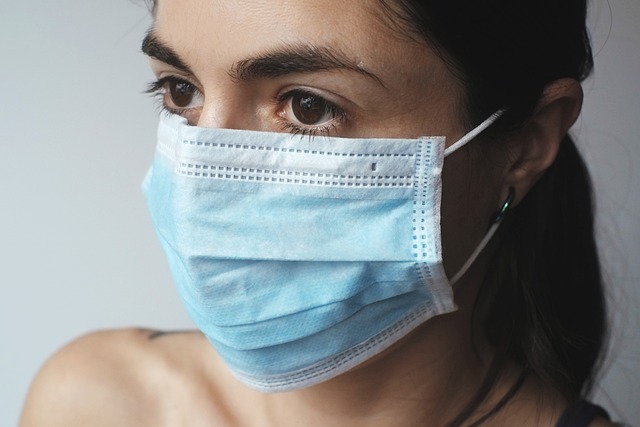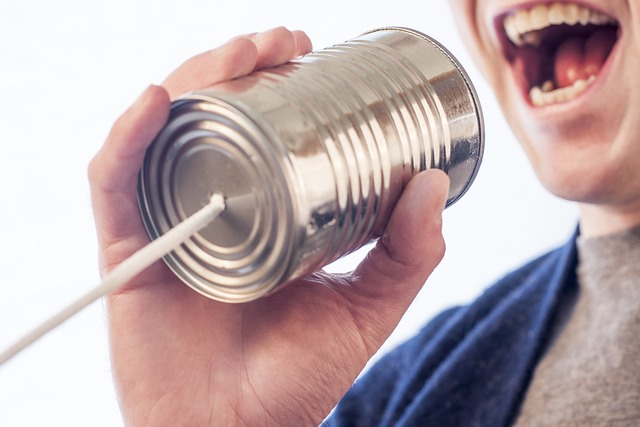Unraveling the Link: Wisdom Teeth and Swollen Lymph Nodes
Welcome to the world ????of oral health! Have you ever experienced swollen lymph nodes, and wondered if they could be linked to your wisdom teeth? Well, wonder no more! In this informative article, we will delve into the intriguing connection between wisdom teeth and swollen???? lymph nodes. Before we embark on this exploration, let’s assure you that there’s no need to panic. We’re here to guide you ????through???? the journey of ????understanding this fascinating phenomenon, all while maintaining???? a friendly and approachable tone. So, sit back, relax, and let’s unravel the link between wisdom ????teeth and swollen lymph nodes together!
1. Understanding Wisdom Teeth: The Basics You???? Need to Know
Wisdom teeth, also known as third molars, ????are the???? final set of teeth to emerge in the back of the mouth. They usually make their appearance between the ages of 17 and ????25. While some people have no???? issues with ????their wisdom teeth, many experience problems due to their late eruption, misalignment, ????or lack of sufficient space in the jaw.
Here are some essential facts about wisdom teeth:
????
-
????
- Development: Wisdom teeth develop beneath the gums and usually start forming during early teenage years.
- Eruption:???? When wisdom teeth???? erupt, they can cause discomfort, pain, and swelling. In ????some???? cases, they may not fully emerge, leading to complications such ????as an impacted tooth.
- Alignment: Wisdom ????teeth often grow in misaligned or at odd angles due to limited space in ????the jaw. This can???? result in overcrowding and potentially damage adjacent teeth.
- Extraction: Many dental professionals recommend removing wisdom teeth proactively to prevent future problems such as infections, cavities, and gum disease.
????
2. The Surprising Connection: Wisdom Teeth and Swollen Lymph ????Nodes
Did you know that there is a surprising connection between wisdom teeth and swollen lymph nodes? Many people experience this issue when their wisdom teeth start to erupt, causing discomfort and swelling in the surrounding???? lymph nodes. In this post, we will explore why this happens???? and ????what you can do to ????alleviate the symptoms.
When your wisdom teeth???? grow in, they can sometimes cause inflammation and infection in???? the surrounding gums, which triggers the ????body’s immune response. As a result, nearby lymph nodes can become swollen and tender. This is a natural reaction as your body tries to fight off the infection. To help ease the discomfort, here are a few tips:
-
- Good ????oral hygiene: Maintain a thorough ????oral care routine by brushing twice a day, flossing daily, and using an antibacterial mouthwash.
- Rinsing with saltwater: Gargling with warm saltwater ????can help reduce inflammation and alleviate pain. Dissolve half a teaspoon of salt in a glass of warm water and swish it around your mouth for about 30 seconds.
- Over-the-counter pain relievers: Non-prescription painkillers like ibuprofen or acetaminophen can provide temporary relief from swelling???? and discomfort.
Remember, it’s always advisable to consult your ????dentist if you experience persistent symptoms or severe pain associated with your wisdom teeth. They can assess your situation and recommend appropriate treatment, such as extraction, if necessary. By taking care of your oral health and seeking professional advice, you can navigate this surprising ????connection between wisdom teeth and swollen lymph nodes with ease.

3. What Are Swollen Lymph Nodes and How Do Wisdom Teeth Come into Play?
Swollen lymph nodes are small, bean-shaped structures found throughout the body that play a crucial role in our immune system. They filter harmful substances and produce disease-fighting white blood cells.???? When they become enlarged or???? swollen, it is often an indication that your body is fighting an infection.
But???? how do wisdom teeth come into play? Well, wisdom teeth, ????also known as third molars, typically erupt in our late teens or early twenties. ????However, due to limited space ????in the mouth, they ????can sometimes???? become impacted or unable to fully emerge. When this happens, the surrounding tissues can become irritated, leading to inflammation and infection.???? One of the possible outcomes is swollen lymph nodes in ????the jaw and neck area, as they respond ????to the infection by expanding in size.
-
- If your wisdom teeth are impacted, you may experience tenderness and swelling around the jaw.
- Common symptoms of???? swollen lymph nodes include pain or discomfort when swallowing, a sore throat, and a fever.
- Seeking professional dental care is essential if you suspect that your swollen lymph nodes are related to your wisdom teeth.
Remember, it’s always best to consult with a dentist???? or oral surgeon who can evaluate your specific situation and provide appropriate treatment options. Delaying treatment can lead to further complications, so don’t hesitate to reach out for expert advice.
Here are some common symptoms???? that can help you recognize swollen lymph???? nodes: ???? ???? It’s important to???? keep in mind that swollen lymph nodes can be a sign of???? various underlying causes, including infections, autoimmune disorders, or even cancer. If you experience prolonged???? or severe symptoms, it is best to consult with a healthcare professional for a proper diagnosis and appropriate treatment. There are several possible causes as to why wisdom teeth can lead to swollen???? lymph nodes. Understanding these causes can help you better manage and alleviate any discomfort ????you may be experiencing. Here are some factors to ????consider: Infection: When wisdom teeth emerge, they can???? create an opening in the gums that allows bacteria to enter and cause infection. This infection can then spread to the???? nearby lymph nodes, leading to ????swelling and tenderness. It is important to maintain good oral hygiene to minimize the risk of infection. Regularly brushing, flossing, and rinsing with an antiseptic mouthwash can help keep bacteria at bay and prevent complications. Impaction: Wisdom teeth often do not ????have enough space in the jaw to fully erupt, causing them to become impacted. Impacted wisdom teeth can put pressure on surrounding tissues and structures, including the lymph nodes, resulting in swelling.???? If you suspect your wisdom teeth are???? impacted, it is recommended to consult with a dentist or oral surgeon for further evaluation. They can determine the best course of action, which may involve extraction to alleviate the symptoms and prevent further complications. Monitoring is an essential aspect of any process or system. It allows you to keep a close???? eye on the performance and health ????of your operations. But how ????do you know when you should be concerned? Below are some???? key indicators that ????signal when it’s time ????to pay attention???? and take action: Remember, monitoring is not just about identifying problems; it’s about proactive prevention and maintaining optimal???? performance. By regularly tracking and analyzing key metrics, you can detect issues early, make informed decisions, and ensure your systems and processes run smoothly. Investing in a reliable monitoring solution will save you???? time, money,???? and???? headaches in the long run. If you are experiencing swollen lymph nodes after getting your wisdom teeth removed, don’t worry! There are several strategies you can use to seek relief and soothe the discomfort. Here ????are???? some tips to help you through this phase: 1. Apply ice packs: Placing an ice pack on the outside of your jaw for 20 minutes ????at a time can help reduce swelling and numb the area. Wrap the ice pack in a thin cloth to prevent direct contact with your skin. 2. Take over-the-counter pain relievers: Nonsteroidal anti-inflammatory drugs (NSAIDs) such as ibuprofen can provide pain ????relief and reduce swelling. Follow the dosage instructions on the packaging and consult your dentist or pharmacist???? if you have any concerns or allergies. When it comes to swollen lymph nodes, prevention is key. By incorporating a few simple tips into your daily routine, you can help ????minimize the risk ????of experiencing swollen???? lymph nodes: Additionally, it’s important to stay on top of your overall health and wellness: Remember, taking preventive measures is often the best defense against swollen lymph nodes. By implementing these tips ????into your everyday life, you’ll???? be on your way to minimizing the risk of swollen lymph nodes and maintaining optimal health.
Wisdom teeth, or third???? molars, ????are the last teeth to develop in your mouth. Often, they can cause several dental problems like crowding, pain,???? and infection due to their location and sometimes, their improper alignment. In some cases,???? when wisdom teeth emerge, they can lead to swollen lymph nodes in the neck and jaw area. While wisdom teeth removal is not a guaranteed solution ????to???? prevent swollen lymph nodes, it can help alleviate the risk and provide relief from potential concerns.
When wisdom teeth are removed, the surrounding tissue is ????also???? extracted, eliminating the potential for infections that may have caused swollen lymph ????nodes. Additionally,???? impacted or partially erupted wisdom teeth can put pressure on the nearby lymph nodes, leading to inflammation. By removing the problematic wisdom teeth, this pressure is relieved, reducing the chances of swollen???? lymph nodes. However, it’s important???? to note that???? not everyone with wisdom???? teeth will develop swollen lymph nodes, as individual anatomy and oral health play a significant role. If you are experiencing swollen lymph nodes due to your wisdom teeth, it may be time to???? consult a professional. While minor swelling ????and discomfort can be common during the eruption of your wisdom teeth, persistent or severe swelling should not be ignored. Seeking expert advice is crucial to ensure proper diagnosis and the appropriate course of treatment. Here are some indicators that it’s time to consult a professional: Remember, any ????concerns about your ????wisdom teeth and swollen lymph nodes should be addressed by a dental or medical professional. They can provide you with the expert advice and guidance you need for a ????safe and effective treatment plan. Q: What is the connection between wisdom teeth and swollen lymph nodes? Q: Why do wisdom teeth cause irritation and infection? Q: What are the symptoms???? of swollen lymph nodes caused???? by wisdom teeth? Q: How can???? I tell if my swollen lymph nodes are???? related to my wisdom teeth? Q: What treatment options are available for swollen lymph nodes caused by wisdom teeth? Q: Are there any self-care measures that can help manage swollen lymph nodes? Q: Can I prevent swollen lymph nodes from occurring with wisdom teeth? Q: Is the removal of wisdom teeth always necessary if swollen lymph nodes occur? In conclusion, understanding the potential link between wisdom teeth and swollen lymph nodes is essential for maintaining good oral health. We have unraveled the ????mystery behind this connection, shedding light on the possible reasons for lymph nodes ????becoming swollen when wisdom teeth???? erupt or get impacted. Remember, swollen lymph nodes???? can be a sign of infection or inflammation in your???? body. If you experience any discomfort, pain, or notice swollen lymph ????glands around your jaw, it’s ????crucial to???? consult your dentist or oral surgeon. They can evaluate your specific???? situation and recommend appropriate treatment options to ????alleviate your discomfort. Prevention is always better than cure. Regular dental check-ups ????and X-rays can help in identifying any potential issues with your wisdom ????teeth early on, allowing for timely medical intervention. By maintaining good oral hygiene practices, such as daily???? brushing and flossing, you can minimize the???? risk of bacterial ????growth around your wisdom teeth, thereby reducing the chances of lymph node inflammation. Ultimately, uncovering the ????mystery behind the link between wisdom teeth and swollen lymph nodes has presented us with valuable insights into the intricate workings of our bodies. Armed with this knowledge, we can take better care of our oral health and ensure that our wisdom teeth do not become a pain in the neck, literally! So, keep ????smiling and remember that your oral health matters. Consult ????your dentist regularly, be aware of the potential impact of wisdom teeth, and stay ????on top of your oral ????hygiene ????to enjoy a healthy, pain-free mouth for years ????to come.
????

5. Exploring Possible Causes: Why Wisdom Teeth Can Trigger Swollen Lymph Nodes
6. The Importance of Monitoring: When Should ????You Be Concerned?
7. Seeking Relief: Strategies for ????Soothing Swollen Lymph Nodes from Wisdom Teeth
8. Prevention is Key: ????Tips to Minimize the Risk of Swollen Lymph Nodes
9. Removing???? Wisdom Teeth: Can It Prevent Swollen Lymph Nodes?
9. Removing Wisdom Teeth
Can It Prevent Swollen Lymph???? Nodes?
????
????
Frequently Asked Questions
A:???? Wisdom teeth are often associated with swollen lymph nodes due to their position at the back of the mouth. When???? wisdom teeth???? start to erupt,???? they can cause irritation and infection, leading???? to the enlargement of nearby lymph nodes.
A: ????The ????main reason is that wisdom???? teeth often don’t have enough space to fully ????emerge or align properly with the surrounding teeth. This can ????result in the teeth becoming impacted or partially erupted, allowing bacteria to accumulate around them, leading to infection and subsequent swelling ????of the nearby lymph nodes.
A: When wisdom teeth cause swollen lymph nodes, individuals may experience pain or tenderness in the affected area, difficulty opening their mouth, bad breath, swollen gums, and even earaches or headaches. It’s essential to consult a dentist to determine the underlying cause accurately.
A: If you experience any of the aforementioned symptoms, it’s best to visit a dentist or oral surgeon for an evaluation. They can examine your mouth and take X-rays to assess the position and condition of your wisdom teeth, allowing them to determine if the swollen lymph nodes are due to the erupting teeth.
A: Treatment depends on the severity of the situation. In some cases, if the wisdom teeth???? are impacted or causing repeated infections, they may need to be extracted. This can alleviate the pressure on the lymph nodes and prevent further complications. However, if the swollen lymph nodes are not directly caused???? by the wisdom???? teeth, the dentist will recommend an appropriate course of action to address the underlying issue.
A: ????Yes, there are???? a few self-care measures you can ????take to alleviate discomfort in the meantime. Rinsing your mouth ????with warm saltwater several times a day can help reduce inflammation. Maintaining good oral hygiene, ????including brushing and flossing regularly, is also crucial. Over-the-counter pain relievers or???? oral gels can provide temporary relief from any pain???? or swelling. However, ????it’s important to remember that these measures are not a substitute for professional dental care.
A: While it may not always be possible to prevent swollen lymph nodes entirely, maintaining good oral hygiene and visiting your dentist regularly for check-ups can help identify any potential issues with your???? wisdom teeth before they become problematic. Regular dental visits can ensure early detection and intervention, which may minimize the chances of developing???? swollen lymph nodes.
A: Not necessarily. Swollen lymph nodes caused by wisdom teeth are often???? a sign of infection or irritation due to impacted or partially erupted teeth. In such cases, extracting the problematic wisdom teeth can resolve the issue. However, each situation is unique, and professional advice from a dentist or???? oral surgeon will provide the best guidance on whether extraction is necessary.






